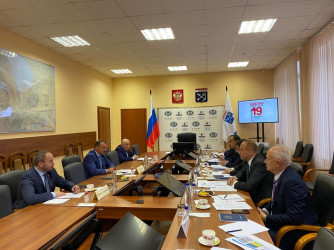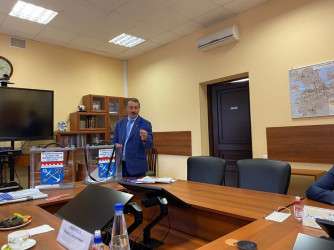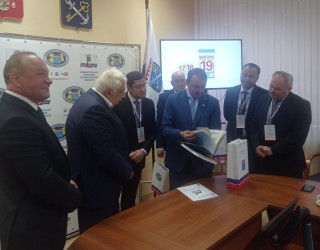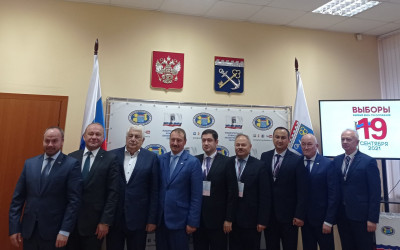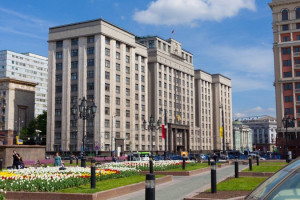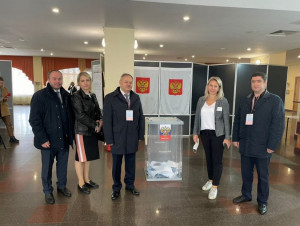IPA CIS Observers Met With Leadership of Electoral Commission of Leningrad Region
15 September 2021
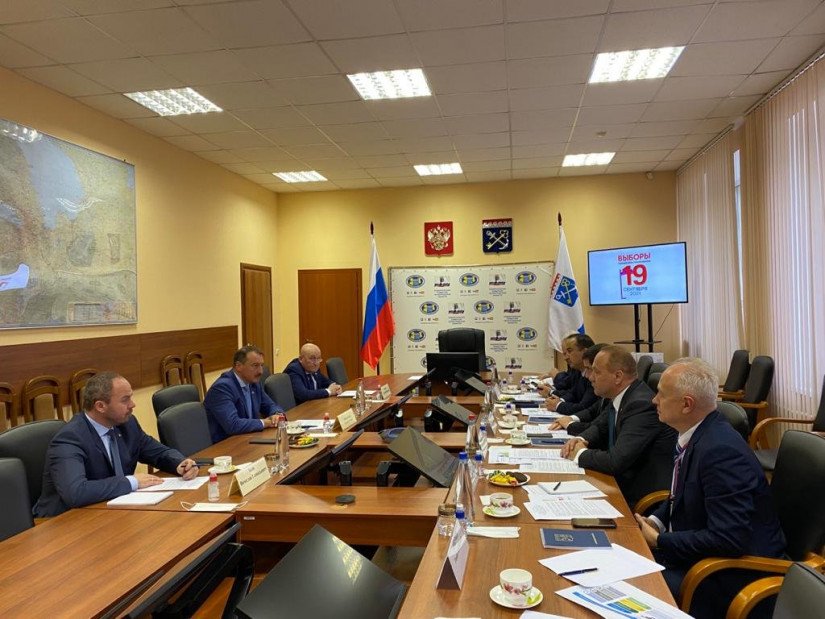
On 14 September 2021, within the framework of the long-term monitoring of the elections to the State Duma of the Federal Assembly of the Russian Federation, international observers and experts of the International Institute for Monitoring Democracy Development, Parliamentarianism and Suffrage Protection of Citizens of IPA CIS Member Nations (IPA CIS IIMDD) held a meeting with the leadership of the Election Commission of the Leningrad Region.
The meeting was attended by Deputy Secretary General of the IPA CIS Council – Plenipotentiary Representative of the Milli Mejlis of the Azerbaijan Republic Aidyn Jafarov, Deputy Secretary General of the IPA CIS Council – Plenipotentiary Representative of the National Assembly of the Republic of Armenia Hayk Chilingaryan, Deputy Secretary General of the IPA CIS Council – Plenipotentiary Representative of the National Assembly of the Republic of Belarus Viktor Kogut, Deputy Secretary General of the IPA CIS Council – Plenipotentiary Representative of the Majlisi Oli of the Republic of Tajikistan Bakhtovar Safarzoda, Deputy Director of the “Center of Cooperation with CIS” of the Herzen State Pedagogical University Stanislav Epifantsev Deputy Secretary General of the IPA CIS Council – IPA CIS IIMDD Director Ivan Mushket and Head of the Analytical Department Roman Amburtsev. The Election Commission of the Leningrad Region was represented by Chair Mikhail Lebedinsky, his Deputy Evgeny Zhdanov and Voting Member Vyacheslav Baev.
Mikhail Lebedinsky informed the observers in detail about the course of the election campaign in the region. He described the procedure for collecting signatures of voters through the portal of state and municipal services of the Russian Federation, as well as the organization of video surveillance at polling stations. The Chair also touched upon the issue of processing of complaints and appeals and disputes resolution, foreign interference in the electoral process and measures to prevent the spread of coronavirus infection.


